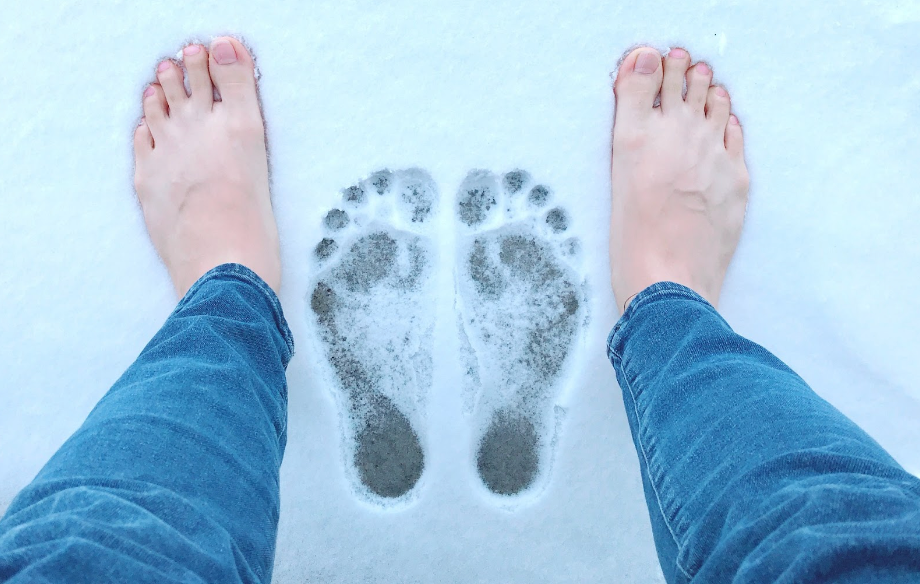Cold feet happen when your feet feel like they're at a lower temperature than the rest of your body. There are a variety of things that can cause cold feet but it's most likely due to poor blood flow in your legs and feet. Cold feet can affect anyone but is more common among people who have an autoimmune issue, circulation problems, or conditions that affect hormones or the nervous system. Having cold feet for a prolonged period of time can cause pain and discomfort throughout your legs. Below are three common reasons for cold feet.
Poor Blood Flow

Poor blood circulation in your legs can cause cold feet. Poor circulation means it takes longer for the blood to reach your feet. Our blood moves through our body in blood vessels, sometimes these vessels can close, harden, or become narrow which makes it more difficult for the blood to flow.
If you sit at a desk all day or live a more sedentary life it can reduce circulation and cause cold feet. Tobacco products can make it more difficult for blood to reach every area of the body, as well. There are more serious causes for poor circulation like high cholesterol or serious heart conditions. It’s best to speak with your doctor if there are any underlying causes for your poor blood circulation.
Side Effects of a medicine

There are some medicines that can cause cold feet as a side effect because of how the medicine interacts with your blood. Some medicines that can cause cold feet are beta-blockers for high blood pressure, ergotamine for headaches, or pseudoephedrine in cold medicine. It’s best to speak with a healthcare provider if you believe your medicine is causing your feet to be colder than normal.
Conditions that cause cold feet
Cold feet can also be a sign of an underlying condition such as;
- Anemia, a condition that happens when a person has too few red blood cells in their body.
- Diabetes can cause circulation problems, when there are high blood sugar levels it can cause the arteries to narrow and reduce blood supply which can cause cold feet.
- Nerve disorders from trauma, injury, or underlying medical conditions, like uncontrolled high blood sugar levels.
- Hypothyroidism is caused by an underactive thyroid gland, which means your thyroid doesn’t release enough hormones causing you to feel cold all over, especially in the feet.
It’s best to work directly with a doctor to help diagnose any of the above underlying conditions to see if they are the cause of your cold feet and to find the best way to prevent the symptom.
Cold Feet Treatments
There are several ways to treat cold feet and below are steps to treat your cold feet at home:
- Wearing warm socks
- Exercising regularly
- Wearing compression socks or stockings
- Eating a healthy, well-balanced diet
- Elevating your legs with a pillow when lying down
- Staying hydrated and drinking water
- Using a Tucker’d Tobee while sleeping.

Queen Size Navy Blue TUCKER'D TOEBEE
Talk to your healthcare provider if you experience cold feet regularly and your at-home treatment doesn’t work. It’s normal to occasionally have cold feet but you should pay attention to the symptoms of cold feet that happen frequently to uncover any underlying health condition.
Sources:
https://www.medicalnewstoday.com/articles/320327#_noHeaderPrefixedContent
https://www.webmd.com/a-to-z-guides/cold-feet-reasons
https://my.clevelandclinic.org/health/diseases/23045-cold-feet
https://www.neufoot.com/blog/4-surprising-reasons-your-feet-are-always-freezing
https://sleepeducation.org/healthy-sleep/healthy-sleep-habits/

